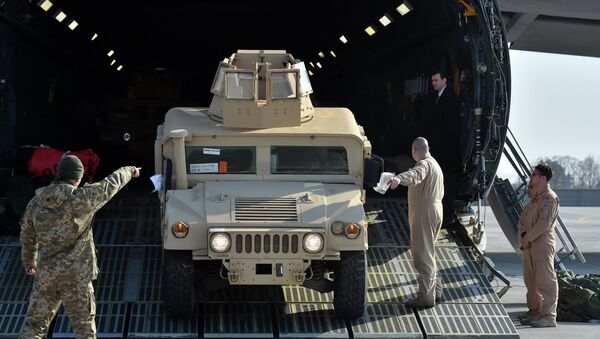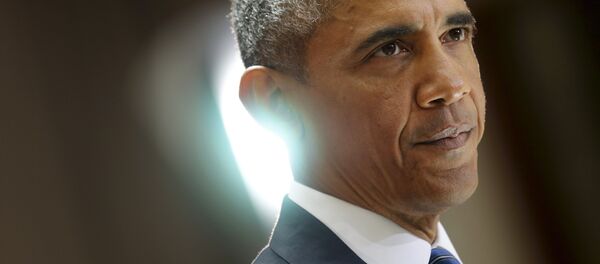The $612 billion bill, which was passed by the House and Senate with large majorities, still needs the support of 20 more House members in order to override the president’s veto.
"There is so much claimed for defence spending in the United States, that it’s unusual for the President to veto a defence bill because he can’t be accused – as Republicans are doing – of being soft," the analyst stated.
"The Republican Party is known as wanting to increase the budget. And Obama now is going out of office in a year or so, so I think he’s emboldened to veto something like a defence bill," the expert believes.
"Most of the Democrats side with Obama simply because the Republicans are trying to make the [US budget] sequester affect only domestic programs by this manoeuvre they are doing," Eland pointed out.
"[The] political reasons here are that there are two parts of money: they have [a] big fund for wars, and where there is a war, we have to fund it out of separate budgets. So, what the Republicans are trying to [do is] fund all weapons and other things that shouldn’t be in the war funding, [be]cause they do not directly relate to war," Eland explained.
And that is simply their way of getting more money out of the budget to spend on weapons, the expert concludes.
The defence contracts that are currently at stake range from small weapons to F-35s, Eland said, and those contracts are distributed among companies in various parts of the United States to keep the military-industrial complex on track, he added.
When it comes to the supply of lethal weapons to Ukraine, the expert stressed that the deliveries will largely depend on who wins the next year’s US elections.
"Even Hillary is more hawkish than Obama, and most of the Republicans except the one (Senator Rand Paul) are hawkish, so there is an increased likelihood there [will] be more US aid to the Ukrainian government," Eland pointed out.
"Hillary has to be hawkish because she’s not only a Democrat but a Democratic woman…she doesn’t want to be called a wimp, so she’s as hawkish as the Republicans are," the expert concluded.
Since the very beginning of the conflict in eastern Ukraine in 2014, the United States has been providing Kiev with non-lethal military assistance. In April, Washington sent 300 troops to Ukraine to train the country’s National Guard.
According to US Defense Secretary Ashton Carter, Washington has so far provided more than 244 million dollars in equipment and training to Ukraine.
The 2016 defence budget bill among other provisions stipulates officially supporting Ukraine with lethal weapons for the first time.




